All Blogs
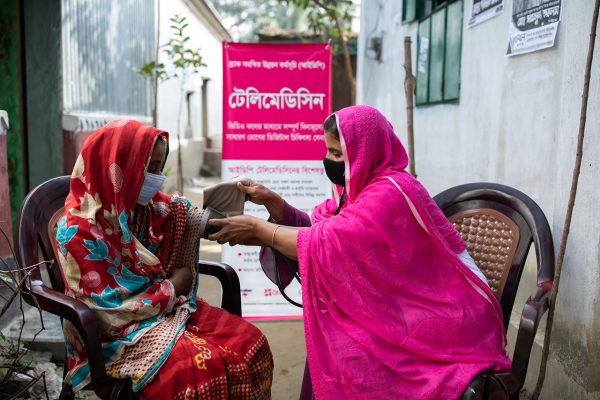
Popi Akhter’s village is shaped like a bowl. It remains submerged in water for half of the year. During those times, getting anywhere is a near-impossible task.
Ajmiriganj is located in the remote haor region – wetlands – in eastern Bangladesh. When 21-year-old Popi was pregnant with her first baby, she experienced complications and needed to consult a doctor urgently. The nearest hospital was 10 kilometres away, and the road was too broken and dangerous for her to make the journey.
A crisis was averted when her aunt, a member of a village development organisation, registered Popi for a …

BRAC’s Ultra-Poor Graduation programme has been evolving as the needs of the people living in extreme poverty change. In December 2021, the programme went digital, creating easier and faster ways of meeting our participants’ needs. In the 20-years journey of the programme, it’s one of the major milestones achieved.
Why was digitalisation needed?
The success of the Graduation approach can largely be attributed to the close interactions between participants and BRAC’s staff members. In the first 12 years of the programme’s operations, these interactions happened face to face, where staff members would spend the whole day in the field – …
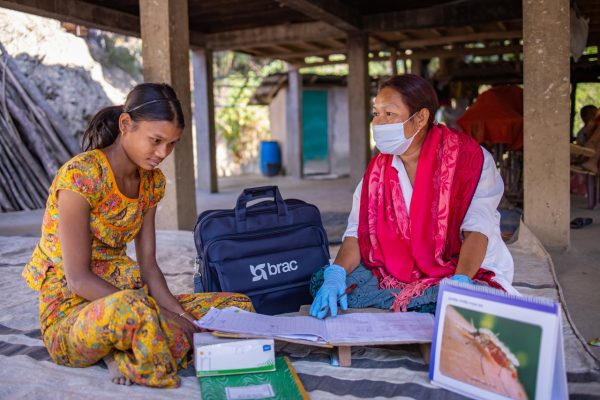
The clock is ticking away for the world to reach its malaria targets by 2030.
The World Health Organisation estimates 241 million cases of malaria in 2021, which took approximately 627,000 lives globally. Despite the breakthroughs in health, Bangladesh still accounts for 0.15% of the total estimated malaria cases in southeast Asia.
Shrinking the malaria map
Bangladesh’s malaria programme has tailored interventions to achieve the targets of National Malaria Strategy 2021-2025. Its phase-wise elimination targets different zones – Mymensingh, Sylhet, Chattogram, and Cox’s Bazar – and aims to reduce the burden of the disease in three districts in the …
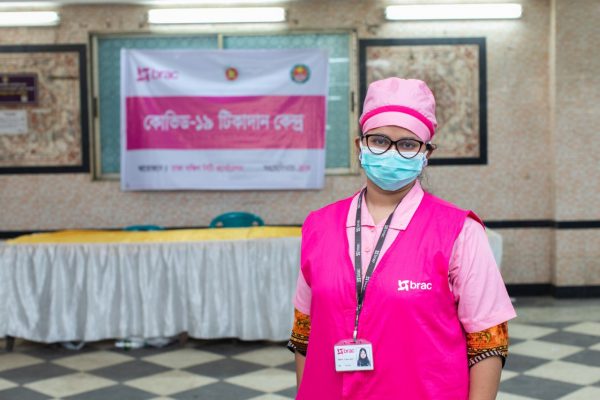
Warriors, superheroes, guardians.
These words might remind us of tall, muscular characters, perhaps with superpowers. People with a responsibility of saving the world from decay.
Looking back at BRAC’s 50 years journey, we would like to challenge this popular idea by highlighting superheroes of our own – our community health workers and volunteers.
They do not have supernatural powers, but they save lives. They challenge gender stereotypes and break barriers everyday to safeguard the wellbeing of their communities. We invite you to read the inspiring stories of three of our superheroes on the ground.
Shipra Rani Mridha, community health …
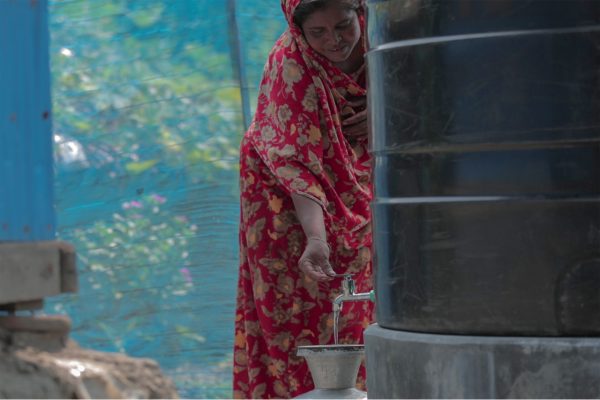
Lokkhi Mondol is surrounded by water. The sun glitters across the river on the right and ponds are filled with shrimp on her left. But Lokkhi cannot drink from any of it. Her community is part of the 2.5 million people in Bangladesh who are struggling from a lack of drinkable water because of climate change.
There is no drinkable water left in Mongla.
Residents have two options: they can pay for water – which can cost up to BDT 10 a litre, depending on who is selling and how high the demand is; or they can collect water …
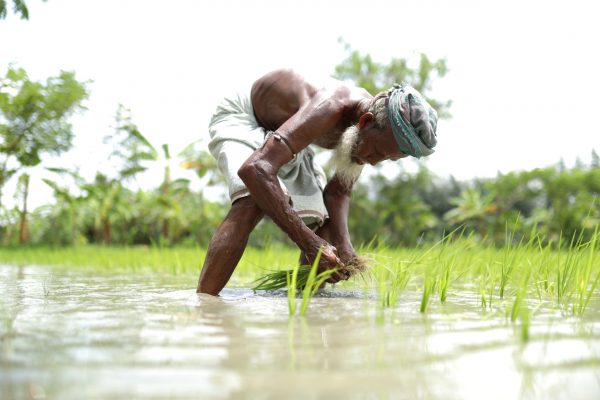
The disappointment of many with COP26 is understandable. Yet again, historical carbon emitters failed to extend the requisite support to countries most impacted by climate change. The deep injustice in the matter is palpable, especially as these countries have contributed the least to the problem at hand.
Thus, countries like Bangladesh – one of the most vulnerable to the impacts of climate change – are strengthening its leadership role among the countries affected, through platforms like the Climate Vulnerable Forum, consisting of 55 developing countries.
Last year’s Intergovernmental Panel on Climate Change’s (IPCC) 6th Assessment Report published the latest …

Moyna lives in an informal settlement in Gazipur, an industrial area near the capital Dhaka, in Bangladesh. She works in a garment factory, six days a week for 11-15 hours on average. She earns approximately USD 96 every month – the average monthly salary of garment workers in Bangladesh – and sometimes a bit more if she does overtime. That money vanishes instantly, in rent, utility bills and groceries. Health insurance, or saving for the future is a distant dream.
Women like Moyna are the backbone of Bangladesh’s ready-made garments industry, which is the second largest exporter of garments …
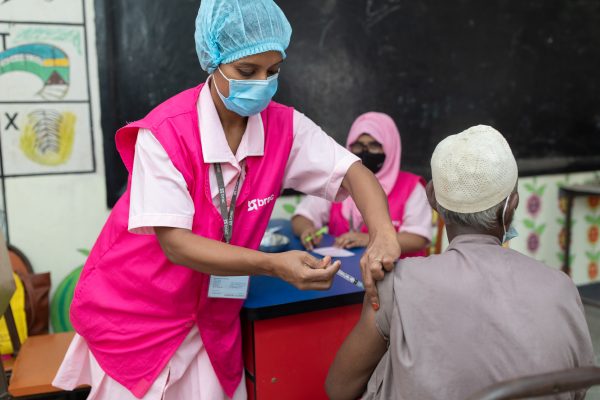
BRAC’s health programme began its journey in 1972 with four clinics in Sulla, a remote area in northeastern Bangladesh. The doctors and health workers at the clinics were mostly men.
Despite having trained health workers, BRAC realised that it was failing to reach the underserved in the last mile. Digging deeper, it was discovered that women living in rural conservative societies did not feel comfortable to seek healthcare services from men.
As a result, although the services were accessible, women could not avail them.
Taking the lesson learned from Sulla, and combining it with the concept of China’s ‘barefoot …
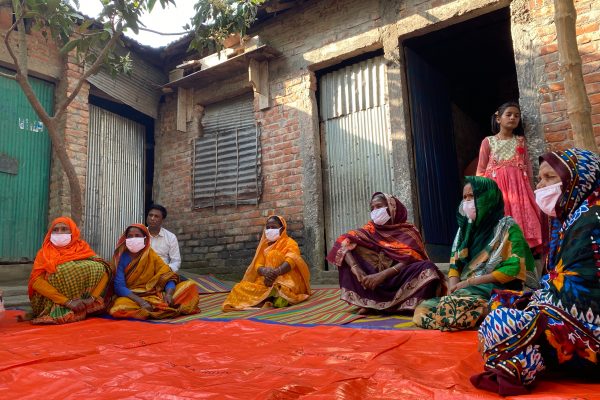
On a warm day in the Bangladeshi district of Rangpur, Shahina and the group of women she sits among take turns sharing their stories – the glowing, late afternoon sun paints golden streaks of light on the brick walls behind them.
Since completing BRAC’s Ultra-Poor Graduation Programme in 2006, all of these women sitting together have been out of extreme poverty for more than 16 years. While pride beams from their eyes in recognition of how far they and their families have come, there is also a subtle sadness as the group recounts their past struggles, 16 years …
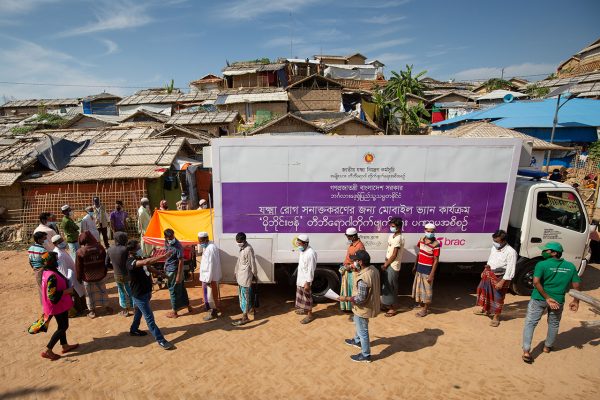
Since August 2017, the influx of one million forcibly displaced Rohingya population has severely strained existing health facilities in Cox’s Bazar, making it challenging to combat infectious diseases.
The mortality rate from tuberculosis has reduced by more than 50% over the past few decades, resulting from the expansion of community-based testing facilities, identifying people with symptoms, and ensuring treatment adherence. Despite that, Bangladesh still remains one of the 30 countries with the highest tuberculosis burden.
Tuberculosis in the Rohingya camps
Tuberculosis is a global public health concern which caused 1.5 million deaths in 2020. In Bangladesh, it is responsible …
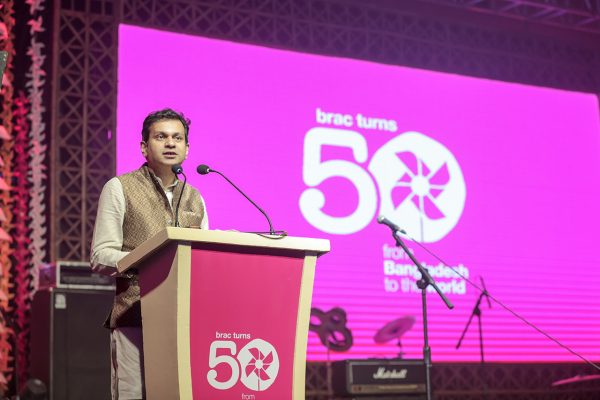
It’s been half a century.
Of resilience, of hope, of hard work.
Of getting up every day with a sense of purpose and not giving up.
It’s been a journey that has taken many turns – but there has always been one thread that has weaved through it all.
The conviction that things can change and that every single individual can bring about that change.
BRAC’s founder Sir Fazle used to say –
When people have the opportunity to realise their potential, it is as if a light gets turned on. We now partner with over 100 million people, …
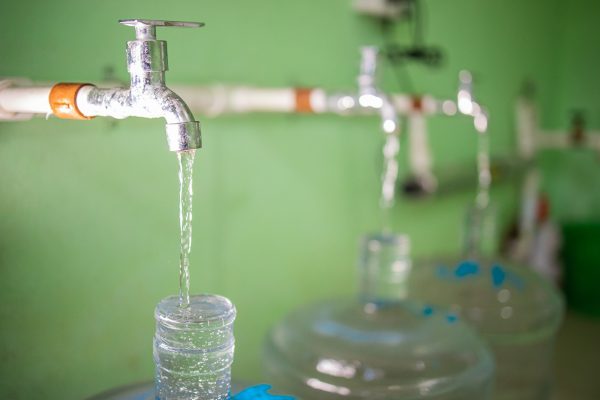
For the first time, I did not get motion-sick during the 25-minute speedboat ride over the choppy waters of the Bay of Bengal to Moheshkhali, a remote island in Cox’s Bazar, southeast Bangladesh. My eyes were fixed on the picturesque island, a dark-green blob against the bluish-grey sea. As I set foot on the island, however, I was not ready to witness the stark challenge that the 257,000 inhabitants of Moheshkhali constantly face – a shortage of safe drinking water.
Walking for water
Growing up in Moheshkhali, Meena Begum struggled to access what many people on the mainland take …

